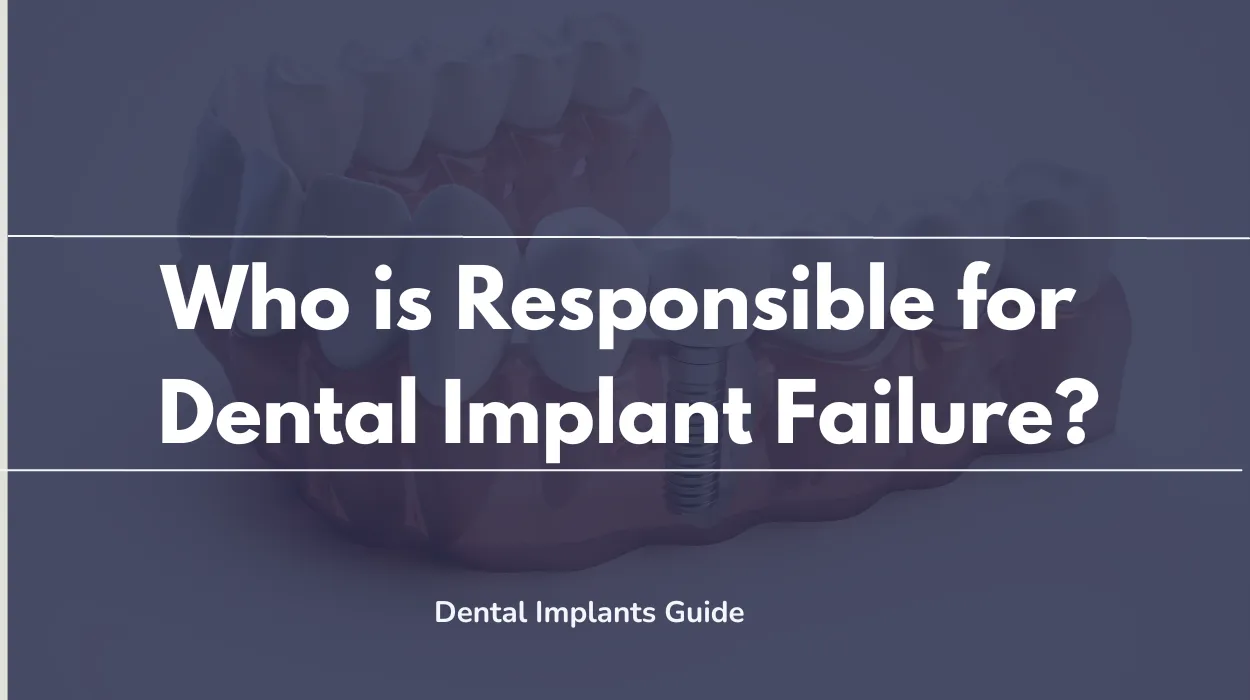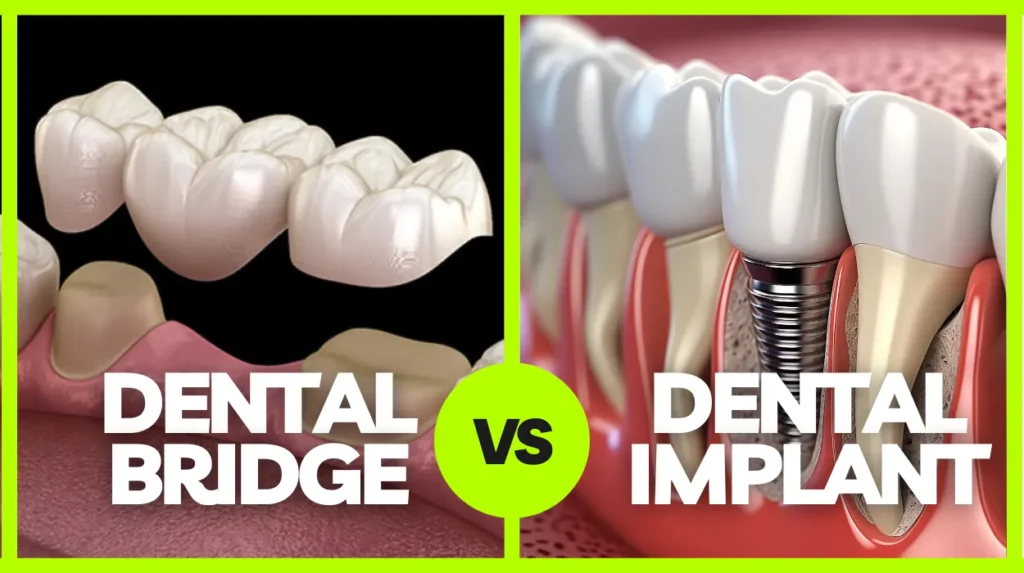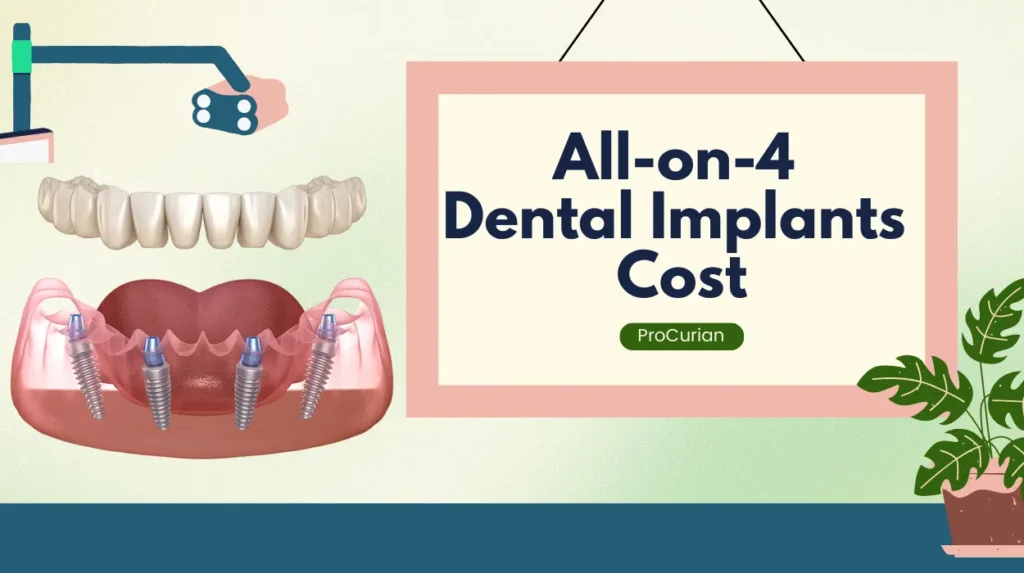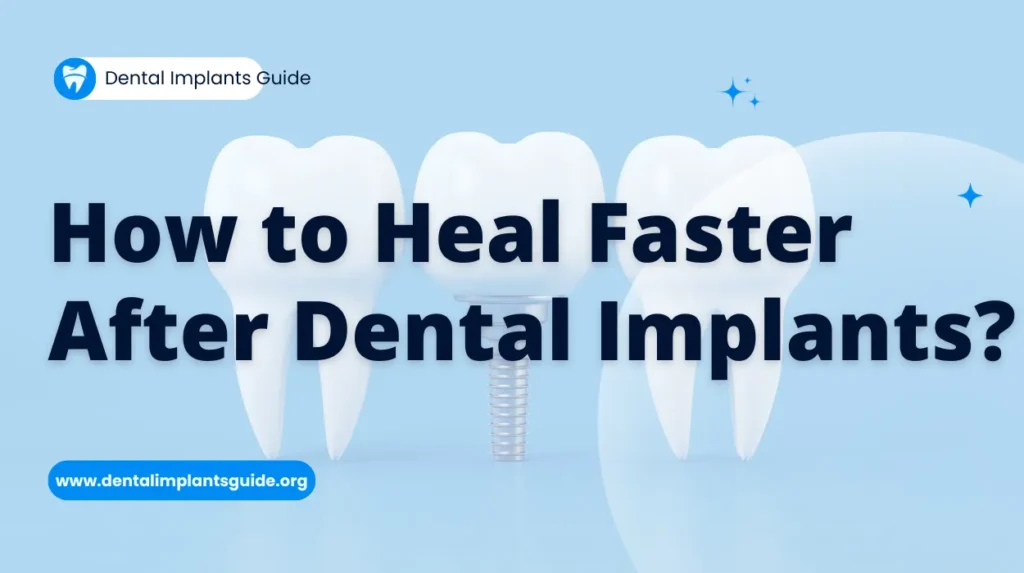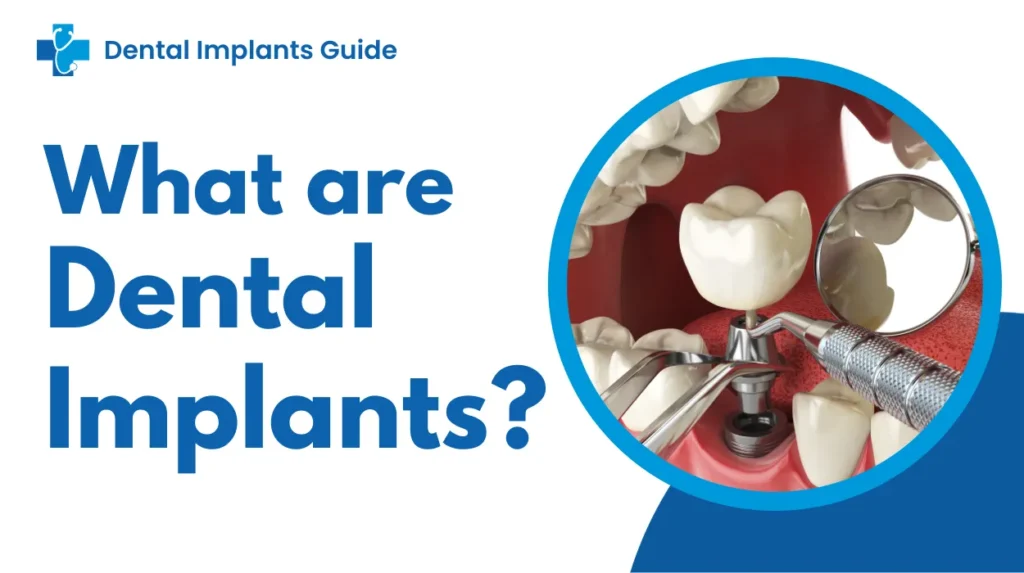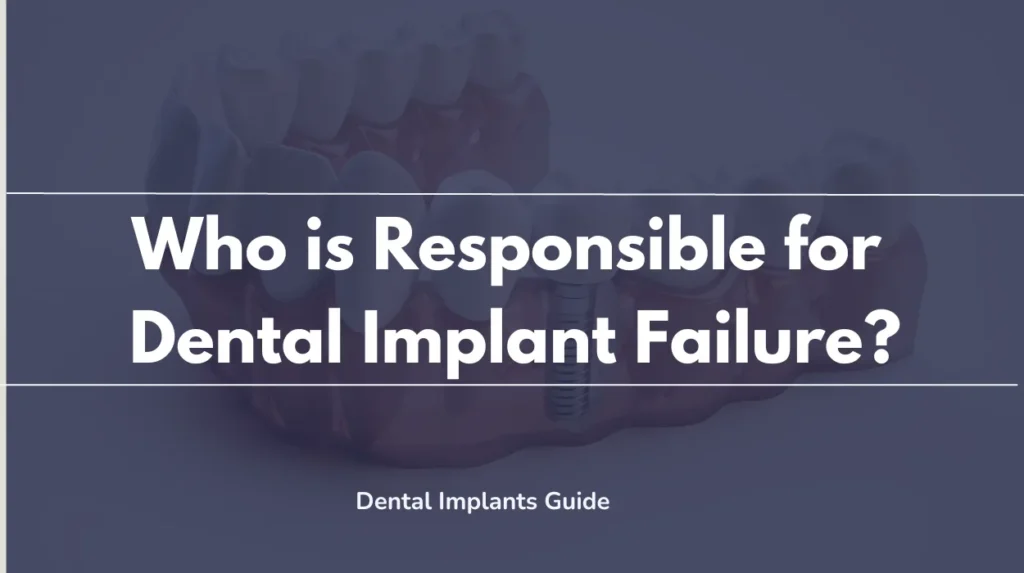
Dental implants are an excellent way to replace missing teeth and regain confidence in your smile.
However, like any medical procedure, they can sometimes fail. In this blog, I’m going to break down the factors that can contribute to dental implant failure in simple terms.
We’ll explore who is responsible for dental implant failure and what you can do to ensure a successful implant journey.
Who is responsible for dental implant failure?
The responsibility for dental implant failure can vary depending on the cause.
1. Peri-implantitis ➞ This is typically caused by poor oral hygiene. If you do not properly brush and floss your teeth, plaque and bacteria can build up around the implant, leading to infection.
2. Implant fracture ➞ This can be caused by a number of factors, including excessive force, trauma, or a defect in the implant itself. If the implant fracture is due to a defect, the manufacturer may be responsible.
3. Biological failure ➞ This is often caused by patient factors, such as smoking, diabetes, or poor oral hygiene. However, it can also be caused by surgical error.
4. Surgical error ➞ If the implant is not placed correctly, or if the dentist uses the wrong type of implant or materials, the dentist may be responsible for the failure.
5. Patient factors ➞ If the patient does not follow the dentist’s instructions after surgery, or if they have a medical condition that increases their risk of implant failure, the patient may be partially responsible for the failure.
Related Article ➦ 8 Common Dental Implants Problems
Common Causes of Dental Implant Failure
When we talk about dental implant failure, we mean that the implants, which act as tiny anchors for replacement teeth, don’t work properly or have problems. This can occur for a variety of reasons:
1. Poor Oral Hygiene
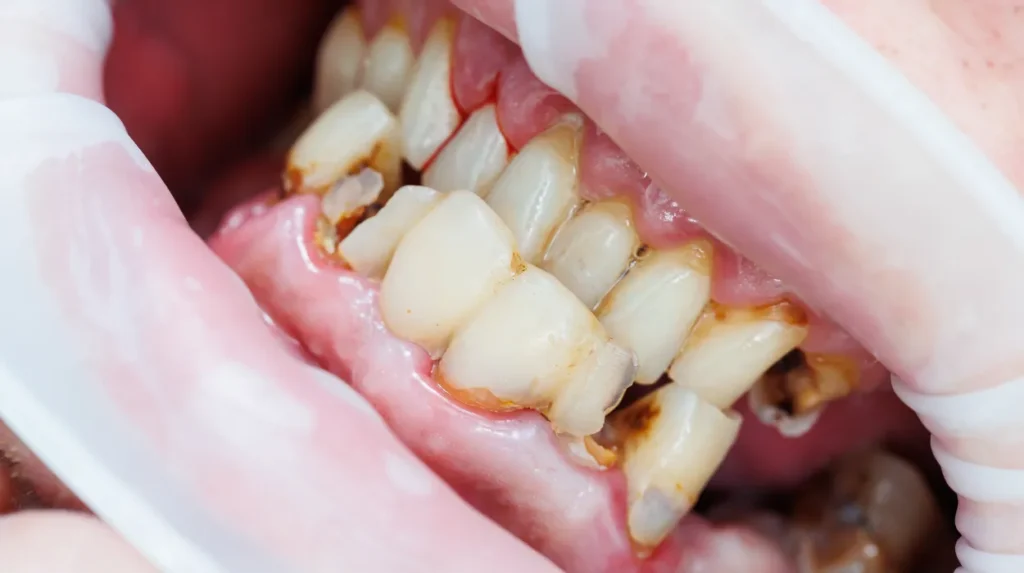
Imagine if you didn’t brush your teeth regularly; they would get dirty, right? Well, the same goes for dental implants.
If you don’t take care of them by brushing and flossing, bacteria can sneak in and cause infections around the implants. Infections are not good for your implants and can make them fail.
2. Smoking

You might have heard that smoking isn’t great for your health, and it’s also not great for your dental implants.
Smoking can slow down the healing process after implant surgery and can make you more likely to get infections. So, if you’re thinking about dental implants, it’s a good idea to quit smoking.
3. Medical Conditions

Some medical conditions, like diabetes, can affect how your body heals. When you get dental implants, your body needs to heal around them.
If you have certain medical conditions that make healing slower or more complicated, it might increase the chance of implant trouble.
Related Article ➦ How Long Do Dental Implants Last?
4. Inadequate Bone Support

For dental implants to work, they need a strong foundation, just like a building needs a solid base. If your jawbone doesn’t have enough strength or volume, it can’t support the implants properly. This can lead to implant failure because they might not stay in place as they should.
5. Infection

Infections are like tiny armies of harmful germs, and they can attack your dental implants. These infections can be caused by poor oral hygiene, as we mentioned earlier. But sometimes, they can sneak in even if you’re doing your best to keep your mouth clean.
6. Implant Overload

Imagine if you tried to carry too many heavy bags at once – it’s tough, right? Well, dental implants can feel the same way if they have to support too much weight or pressure. If you bite down too hard on your implants or if your bite isn’t balanced, it can put extra stress on them, which isn’t good.
7. Inexperienced Dentist

Think of dental implant surgery like building a delicate piece of furniture. You’d want an experienced carpenter, right?
Similarly, you need an experienced dentist to place your implants correctly. If the dentist makes mistakes during the surgery, it can lead to problems down the road.
Related Article ➦ Who Is NOT A Good Candidate For Dental Implants?
Responsibility of the Patient
You play a significant role in the success of your dental implant. Here are your responsibilities:
1. Oral Hygiene
- Brushing and Flossing ➔ Maintain good oral hygiene by brushing and flossing regularly. Proper cleaning around the implant prevents infections.
- Regular Dental Check-Ups ➔ Visit your dentist as scheduled for check-ups and cleanings. They can detect issues early and provide guidance on caring for your implant.
2. Lifestyle Choices
- Quit Smoking ➔ Smoking can impede the healing process and increase the risk of implant failure. Consider quitting if you’re a smoker.
- Limit Alcohol ➔ Excessive alcohol consumption can also interfere with healing. Moderation is key.
3. Diet and Nutrition
- Balanced Diet ➔ Eat a balanced diet rich in vitamins and minerals to promote healing and overall oral health.
Responsibility of the Dentist
Choosing the right dentist for your implant procedure is crucial. Here’s what you can expect from your dentist:
1. Skill and Experience
- Credentials ➔ Ensure your dentist is qualified and experienced in implant surgery. Ask for credentials and references.
- Correct Placement ➔ Proper placement of the implant is vital. Your dentist should have the skill to position it correctly in your jawbone.
2. Pre-Procedure Assessment
- Bone Quality ➔ A thorough assessment of your jawbone’s quality and quantity should be conducted before the surgery.
- Health Evaluation ➔ Your dentist should evaluate your overall health to determine if you are a suitable candidate for implants.
3. Post-Procedure Care
- Follow-Up Appointments ➔ Your dentist should schedule follow-up appointments to monitor your healing and address any concerns promptly.
- Instructions ➔ Clear post-operative instructions and guidance on aftercare should be provided.
Related Article ➦ Does MetLife Dental Cover Implants?
What to do if your dental implant fails?
If your dental implant fails, the first thing you should do is visit your dentist. They will examine the implant to determine what went wrong with it.
Once the reason of failure has been identified, the dentist can devise a plan to treat the failure and, if necessary, replace or remove the implant.
If you believe your dental implant failed due to malpractice, you should consult with an attorney. An attorney can assist you in evaluating your situation and determining whether you have a legal claim against your dentist or the implant manufacturer.
How can implant failure be prevented?
Nobody wants their dental implants to fail, right? Well, here are some easy and important things you can do to help prevent implant failure:
1. Keep Your Mouth Clean
- Brush➡ Brush your teeth, including the implant, twice a day.
- Floss➡ Use dental floss to clean between your teeth and around the implant.
- Mouthwash➡ Rinse with mouthwash to kill germs.
2. Visit Your Dentist
- Regular Check-Ups➡ Go to your dentist for regular check-ups. They can catch problems early.
- Cleanings➡ Get your teeth cleaned by the dentist or hygienist.
3. Stay Healthy
- Eat Well➡ Eat healthy foods to help your body heal.
- Don’t Smoke➡ If you smoke, try to quit. Smoking can harm your implant.
4. Listen to Your Dentist
- Follow Instructions➡ Do what your dentist tells you after getting the implant.
- Ask Questions➡ If you’re unsure about something, ask your dentist.
5. Protect Your Teeth
- Wear a Nightguard➡ If you grind your teeth at night, wear a nightguard to protect your implant.
6. Choose a Good Dentist
- Find a Skilled Dentist➡ Pick a dentist who knows what they’re doing with implants.
- Ask Questions➡ Don’t be afraid to ask the dentist about their experience.
FAQs
What is the most common cause of dental implant failure?
The most common cause of dental implant failure is poor oral hygiene, which can lead to infections around the implant site.
Do dental implants come with a guarantee?
Yes, some dental implants come with a guarantee, but it is important to check with your dentist to see what is covered and for how long.
Can you get a refund for a failed dental implant?
Yes, you can get a refund for a failed dental implant, but it depends on the cause of the failure. If the implant failed due to dental malpractice, you may be entitled to a refund from your dentist. If the implant failed due to other factors, such as poor oral hygiene or a medical condition, you may not be entitled to a refund.
What greatly increases the risk of implant failure?
Poor oral hygiene, smoking, excessive alcohol, and underlying health issues like diabetes greatly increase the risk of dental implant failure.
What is the survival rate of dental implants placed at sites of failed implants?
Dental implants placed at sites of failed implants have a survival rate of around 86%.
Final Thoughts
In the journey to a beautiful, healthy smile through dental implants, both you and your dentist share responsibilities.
Success depends on a combination of factors, from oral hygiene to the skills of your dental professional.
Remember that dental implant failure is not always your or your dentist’s fault. Sometimes, unforeseen complications can arise.
However, by taking your responsibilities seriously and choosing a qualified, experienced dentist, you can significantly increase the chances of a successful outcome.
